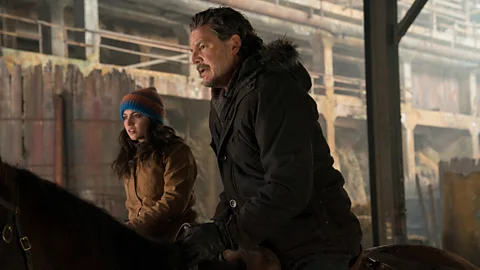The Last of Us Season Two: A Narrative Evolution

Overview of Season One’s Success
The inaugural season of The Last of Us was widely acclaimed, capturing audiences with its depiction of profound human connection set against the backdrop of a zombie apocalypse. The series centered around the evolving relationship between Joel and Ellie, showcasing themes of survival and familial love amidst the chaos of a world filled with infected beings.
Significant Changes in Season Two
Commencing five years after the events of the first season, Season Two embarks on a new narrative trajectory, presenting a bold and shocking turn of events. While risk-taking in storytelling can yield successful outcomes—as demonstrated by other series—it appears this season’s shift may not resonate as well with all viewers.
Character Development and Dynamics
In this new season, Joel and Ellie reside in Jackson, Wyoming, where the familiar dynamics are momentarily stable. Joel, portrayed by Pedro Pascal, remains a compelling character, blending a hardened exterior with glimpses of vulnerability. Bella Ramsey continues to embody Ellie, bringing her spirited nature to the forefront. However, the significant turn in plot leaves their relationship feeling less impactful compared to its former depth.
Thematic Exploration
The narrative retains a focus on moral quandaries surrounding violence in a lawless society. The introduction of new characters, including Abby—played by Kaitlyn Dever—adds complexity to these ideas. Abby’s pursuit of revenge against Joel underscores the conflicting notions of justice and vengeance that permeate the series.
Shifts in Pacing and Tone
This season introduces thrilling sequences, notably an early sequence featuring an onslaught of infected breaching Jackson’s defenses, which injects intensity into the storyline. Despite these exciting moments, the frequent use of these encounters can lead to predictability, potentially diminishing their impact.
Conclusion: Balancing Innovation with Narrative Pace
While the series endeavors to explore new territory, the pacing of the current narrative and the shift towards external threats may dilute the emotional core that initially captivated viewers. Fans familiar with the video game may have differing expectations compared to newcomers, leading to a divergent reception of the series’ developments. As the season progresses, it remains to be seen how effectively the show balances its character-driven roots with the desire for bold storytelling choices.

